Description
ABSTRACT
The Supreme Court of Nigeria Decision in Skye Bank Ltd v Victor Iwu: Matters Arising
John Oluwole A. Akintayo* and David Tarh-Akong Eyongndi**
The National Industrial Court of Nigeria (NIC) was established by the Trade Dispute Decree No. 7 of 1976. By the Trade Dispute (Amendment) Decree No. 47 of 1992, the NIC was elevated to the status of a superior court of record. This elevation engendered controversies over its legal status and jurisdiction, and steps have been taken to address these controversies. These include the enactment of the NIC Act, 2006 and the amendment of the 1999 Constitution Federal Republic of Nigeria (CFRN) by the Constitution of the Federal Republic of Nigeria (Third Alteration) Act, 2010. Section 7 of the NIC Act and sections 2, 3, 4, 254A, 254C of the Constitution (Third Alteration) Act constitutionally elevated the NIC to the status of a superior court of record with exclusive original jurisdiction in labour matters. However, Sections 9 of the NIC Act 243(2), 254C(6) of the Constitution (Third Alteration) Act made appeals from the decisions of NIC to the Court of Appeal to lie only on fundamental rights issues contained in Chapter IV of the Constitution and criminal matter thereof. The interpretation of these sections vis-a-vis section 240, 242 and 243(3) of the CFRN has led to the delivery of contradictory judgments by the Court of Appeal. On the 30th day of June 2017, the Supreme Court of Nigeria delivered judgment in Skye Bank Plc v Iwu wherein it held that the appellate jurisdiction of the Court of Appeal is not limited by section 9(1) and (2) of the NIC Act and Section 243(2) 1999 CFRN. This article examines whether this judgment has settled the controversies caused by the contradictory decisions of the Court of Appeal and matters arising from the decision as well as their effect on the growth of the Nigerian labour law.
Keywords: National Industrial Court, Jurisdiction, Appeals, Fundamental Rights.
INTRODUCTION
Courts are created by statutes and the statute that creates a court gives it jurisdiction.1 Thus, whatever jurisdiction not expressly given to a court is regarded to have been taken away from it.2 The National Industrial Court of Nigeria (NIC) emerged due to necessity.3 It was created in 1976 by the Trade Disputes Decree No. 7, with exclusive original jurisdiction over employer-employee matters and ancillary disputes. Since then, the NIC has been faced with various legal difficulties. Notably amongst these are its status, powers and jurisdiction. These controversies have in the recent past led to non-recognition of its jurisdiction and refusal of enforcement of its rulings and judgments by other established courts in Nigeria.4
* Ph.D, BL. Reader, Department of Jurisprudence and International Law, University of Ibadan, Ibadan, Nigeria.
** LL.B (Hons) UNICAL, LL.M (Ibadan) BL. Lecturer, Department of Private and Commercial Law, Faculty of Law, Bowen University, Iwo, Nigeria
- Egharevba v Eribothe [2010] All FWLR (Part 530) 1213, 1228.
- Okulate v Awosanyo [2000] 2 NWLR (Part 696) 530, 550 – 551, Oloba v Akeraja [198S] 7 SC (Part 1) 1, 3. 32.
- B Aturu, Nigerian Labour Laws: Principles, Cases, Commentaries and Material, (Friedrich Ebert Stiftung, Reprint Lagos 2008) (Reprint) 236.
- F Adeoti, ‘National Industrial Court: Our Journey from Obscurity-Justice Adejumo (President)’ (Future News, 25 June 2009) Accessed 11 October 2017.

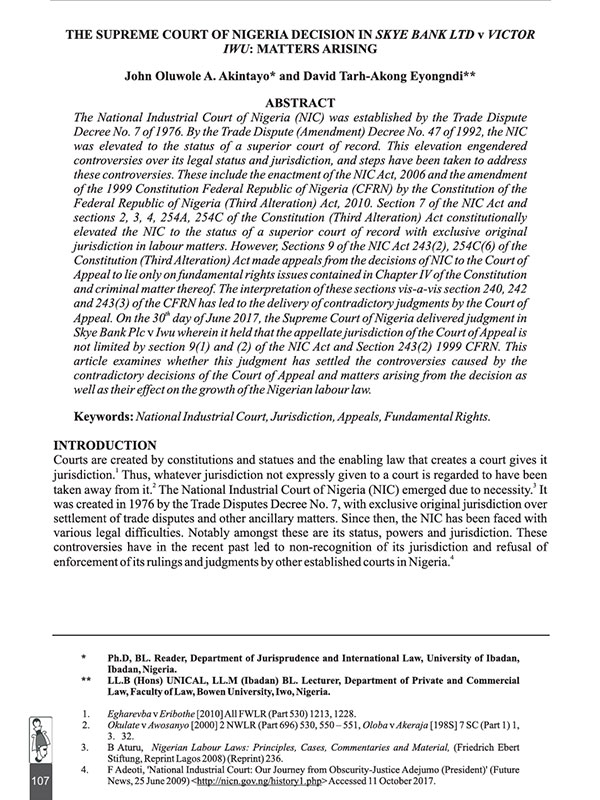
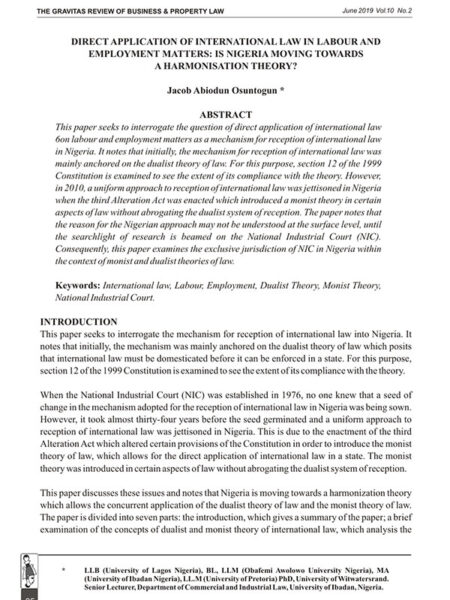
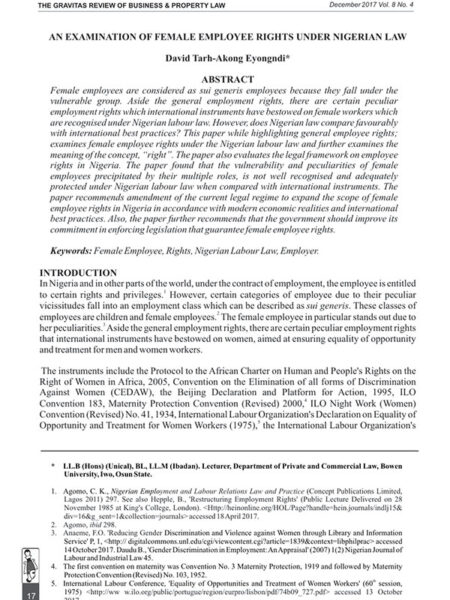
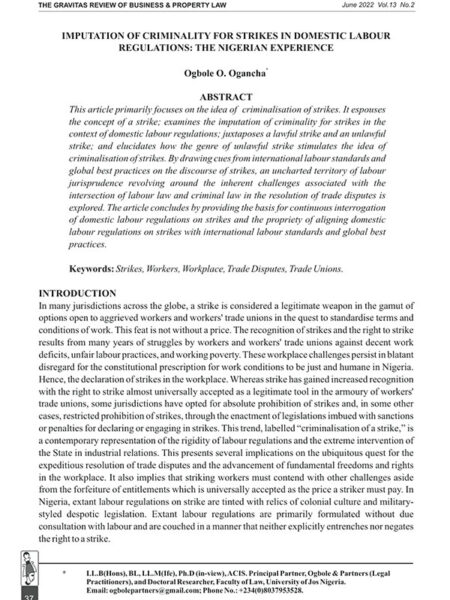
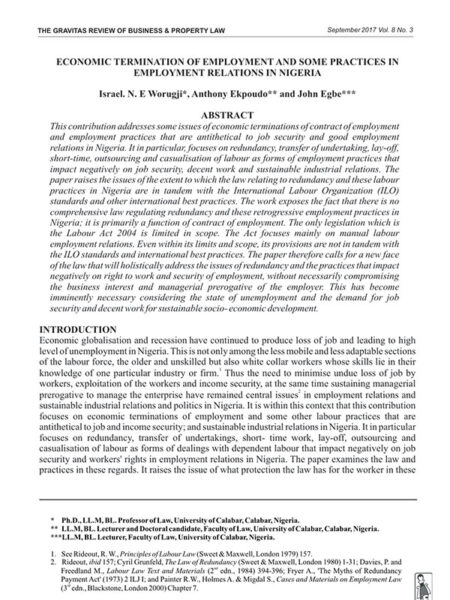


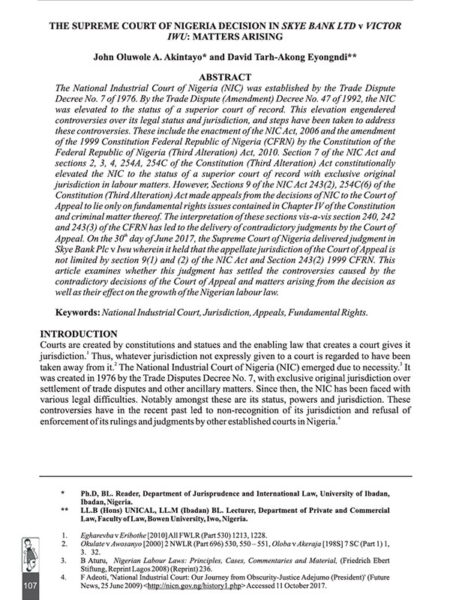
Reviews
There are no reviews yet.